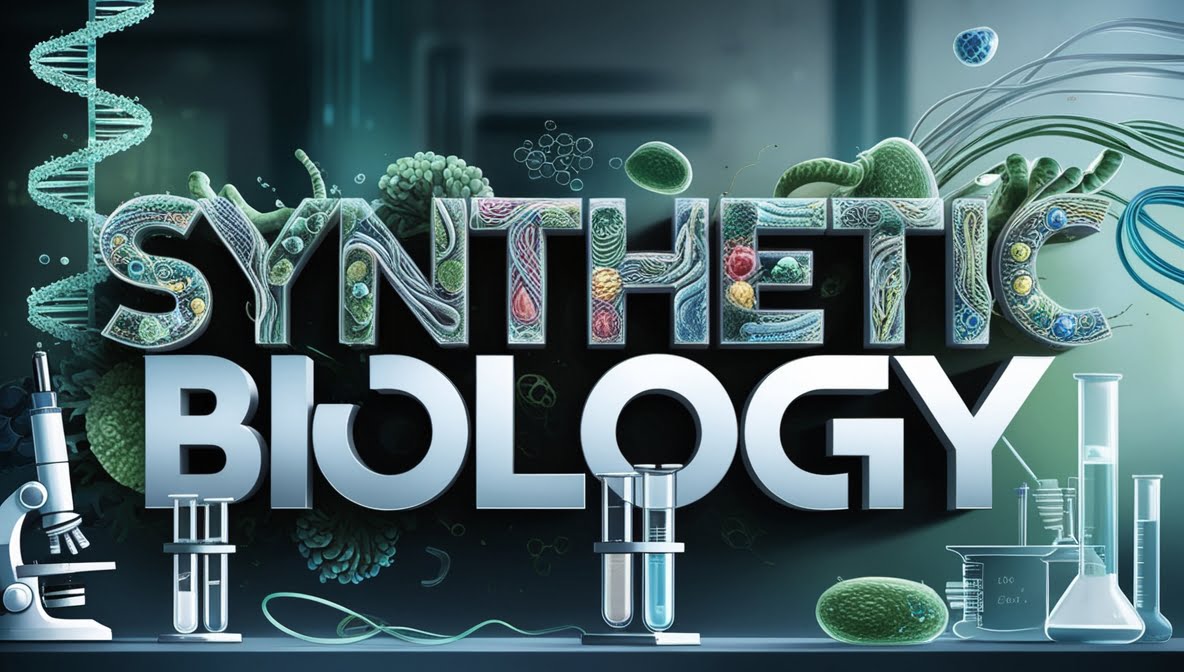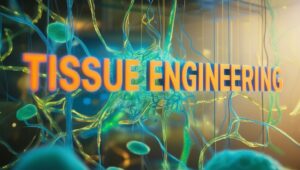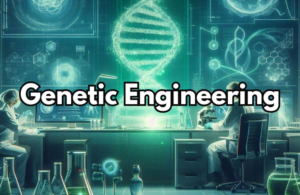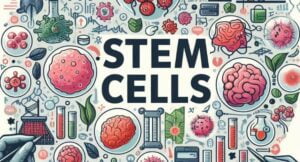Synthetic biology is an exciting field that combines engineering principles with biological systems to create novel organisms capable of performing specific tasks. By understanding the fundamental building blocks of life and how they interact, scientists can now design and construct custom-made biological systems from scratch. This revolutionary approach has the potential to revolutionize fields ranging from medicine to environmental protection.
What is Synthetic Biology?
Synthetic biology is the process of designing and constructing new biological parts, devices, and systems, or redesigning existing ones for useful purposes. It builds upon genetic engineering principles but takes it a step further by applying engineering concepts like standardization and abstraction. The goal is to create biological systems that can perform specific functions, much like how engineers design machines to carry out tasks.
Think of it as genetic engineering on steroids. Instead of just tweaking a gene here and there, synthetic biologists are writing whole new genetic codes and even creating artificial life forms. But don’t worry, we’re not talking about creating monsters in a lab (at least, not yet).
How Does Synthetic Biology Work?
The key to synthetic biology lies in understanding the fundamental building blocks of life – DNA. By artificially synthesizing DNA, scientists can create custom DNA parts that can be combined to form devices and systems. These devices are then inserted into living cells, which act as the “chassis” to carry out the desired functions.The process of designing a biological system involves several steps:
- Identifying the Goal: First, we need to figure out what we want the organism to do. Do we want it to produce a specific chemical? Clean up pollution? Or maybe even be a tiny, living computer?
- Modeling and simulation: Scientists use computer models to predict how different biological parts will interact and function together.
- DNA synthesis: Custom DNA sequences are synthesized based on the designed system.
- Assembly: The synthesized DNA parts are assembled into larger constructs and devices.
- Testing and optimization: The constructed systems are tested in living cells and optimized through an iterative process of testing and modification.
What are the Applications of Synthetic Biology?
The potential applications of synthetic biology are vast and varied. Here are a few examples:
- Healthcare: Synthetic biology can be used to create new treatments for diseases, such as engineered bacteria that can detect and destroy cancer cells.
- Environmental protection: Microbes can be engineered to break down pollutants or produce biofuels, reducing our reliance on fossil fuels.
- Industrial production: Synthetic biology can be used to create more efficient and sustainable methods of producing chemicals, materials, and other products.
- Bioremediation: Engineered organisms can be used to clean up environmental contamination, such as oil spills or toxic waste.
Is Synthetic Biology Safe?
This is a great question, and one that keeps scientists up at night. Creating new life forms is a big deal. There are concerns about unintended consequences. What if a synthetic organism escapes the lab and wreaks havoc on the environment?
To address these concerns, there are strict regulations and safety protocols in place. Scientists are also developing ways to make synthetic organisms dependent on specific nutrients, so they can’t survive outside the lab. It’s like creating a biological leash.
What are the Challenges and Concerns?
While synthetic biology holds great promise, there are also challenges and concerns that need to be addressed. Some of the key issues include:
- Safety and containment: There are concerns about the potential risks of engineered organisms escaping into the environment or being misused for harmful purposes.
- Ethical considerations: The ability to create new life forms raises ethical questions about the boundaries of human intervention in nature.
- Regulatory frameworks: As a new and rapidly evolving field, there are questions about how synthetic biology should be regulated and what policies should be in place.
- Complexity: Biological systems are incredibly complex. Even simple organisms have intricate networks of interacting genes and proteins.
- Unpredictability: Living systems can behave in unexpected ways when we tinker with them.
How is Synthetic Biology Different from Traditional Genetic Engineering?
Think of traditional genetic engineering as making minor edits to an existing book, while synthetic biology is like writing a whole new novel from scratch. Traditional genetic engineering typically involves transferring one or a few genes between organisms. Synthetic biology, on the other hand, aims to design and construct new biological parts, devices, and systems that don’t exist in nature.
It’s the difference between adding a sunroof to your car and designing an entirely new vehicle from the ground up. Synthetic biology gives us unprecedented control over biological systems, allowing us to create organisms with radically new functions.
What Skills Do You Need to Become a Synthetic Biologist?
If you’re thinking of joining the ranks of biological designers, you’ll need a unique blend of skills:
- Biology: A solid understanding of genetics, molecular biology, and biochemistry is essential.
- Engineering: The ability to think in terms of systems and design principles is crucial.
- Computer science: Many aspects of synthetic biology involve computational modeling and bioinformatics.
- Creativity: Designing new biological systems requires out-of-the-box thinking.
- Ethics: An understanding of the ethical implications of this work is vital.
It’s like being a mad scientist, engineer, computer programmer, and philosopher all rolled into one. And let’s not forget a healthy dose of patience – biology doesn’t always cooperate with our grand designs!
What does the future hold for synthetic biology?
The future of synthetic biology is as exciting as it is unpredictable. We might see:
- Personalized medicine tailored to your genetic makeup
- Self-healing materials made from engineered living cells
- Crops that can thrive in changing climates
- Biological computers that use DNA for data storage and processing
- Engineered organisms that can survive on other planets, paving the way for space colonization
As synthetic biology continues to advance, it has the potential to reshape our world in profound ways. It’s a field that blurs the line between science and science fiction, pushing the boundaries of what’s possible.
In conclusion, synthetic biology represents a paradigm shift in how we interact with and harness the power of living systems. By designing biological systems for specific purposes, we’re opening up new frontiers in medicine, environmental conservation, manufacturing, and beyond. It’s a field that requires us to think big, act responsibly, and never stop questioning what’s possible. Who knows? The next big breakthrough in synthetic biology might come from someone reading this article right now.






